God grant me the serenity to accept the things I cannot change, the courage to change the things I can, and the wisdom to know the difference."
Reinhold Niebuhr (1892-1971)
After working in Catholic education for more than 30 years, running a large, Catholic high school for 9 of those years, I came to Meitler thinking I knew a lot. What I didn’t know much about, however, was change. Being exposed to Catholic schools throughout the United States while working as a Meitler consultant, I soon experienced a wide variety of approaches to education at both the elementary and secondary level. I quickly became an advocate for change, or at least questioning the status quo. I encouraged school administrators and teachers to attend regional and national conferences to expose themselves to different ideas. Like my Meitler colleagues, I suggested to client schools that they introduce new, innovative techniques in response to issues that surfaced during our data search. But often there was resistance to change. Perhaps the administrator did not have the vision or the desire to implement new procedures or pedagogies. Other times, the administrator was eager to try new ideas, but the faculty was hesitant to embrace a “foreign” idea. I remember speaking to a teacher at a school that had recently introduced a one-to-one laptop program. I asked how he was utilizing the laptops and he said he told the students to put them away upon entering the classroom. “They are just a distraction” he said.
COVID-19
The word “change,” however, is a relative term. Minor changes occur practically every year as we update our school handbooks. And then COVID-19 happened! Whether we wanted it or not, whether we were ready for it or not and regardless of what parents, teachers or students thought about it, major change was thrust upon us. Here is where some serenity to accept something we cannot change comes in handy. I’m thinking there is a silver lining here, though. I spoke with Joe Azzolino, the Head of School at Immaculate Conception High School in Lodi, New Jersey this morning. His school moved from virtual instruction last year to in-person classes this year. Last year’s change to virtual was monumental. Moving back to in-person instruction was also monumental, requiring more changes to methodology (especially to accommodate those few choosing to remain virtual), re-envisioning assemblies, food service, and on and on. People at his school were stressed but worked together to move through the various iterations of the crisis. This week, the city unexpectedly announced that in a few days they needed to do some major work near the school which would totally disrupt instruction. Without any hesitation, Mr. Azzolino moved all instruction for that day to 100% virtual. The students stayed home, the teachers logged in and school went on without any issues. That would not have been the case a few years ago. School would have been cancelled and the day(s) forfeited or added on to the school calendar at the end of the semester. The pandemic is a change to our lives that we cannot control. We have to accept the fact that normal routines are altered or eliminated. The question becomes, what in this worldwide crisis can we control? What changes can we embrace? One thought is that the COVID-19 experience added a new option to a school’s ability to confront external complications. I suspect Immaculate Conception, and many other schools in the northern climate, will no longer deal with snow days. COVID-19 changed our sense of normal, but it also rewarded us will new options to deal with dilemmas.
Sometimes, substantial change is not brought upon us externally, but is lurking within our seemingly normal day-to-day. It is not uncommon for us at Meitler to conduct the data research portion of our work with a school, which includes numerous interviews with a variety of constituents, and discover the proverbial elephant in the room. An issue, or issues, so large and daunting that a common reaction from school administrators is to ignore it. This is when we need the courage to make necessary changes. Here are some examples of administrators having the wisdom and the courage to change fundamental elements of a school to solve a problem that seemed unmanageable.
St. Terese Academy, Archdiocese of New Orleans
Holy Rosary School was a PK to 12 school in the Archdiocese of New Orleans which focused on students with mild to moderate learning differences who desired a Catholic education. Meitler was asked to evaluate the school and make a recommendation for the sustainability of this school’s important mission. The school had been losing enrollment for the past 5 years and had tried a variety of approaches to turn those numbers around. Based on market research and data compilation, Meitler determined that there were some major and fundamental problems that the school needed to face in order to stabilize and grow. Without going into the reasons for these issues, they included the need to change the school’s name, change the school location and change the school’s curricular methodology. Many of the people we interviewed understood all or most of these issues, but they were issues that were overwhelming and would require change beyond what the school felt it could handle.
With Meitler’s assistance, and the courage of Superintendent RaeNell Houston, the school changed its name to St. Terese Academy, moved to Metairie, an inner ring suburb of New Orleans, and implemented a personalized educational platform for these students with exceptional needs and learning differences. Enrollment has increased to the point of creating wait lists for some grade levels.
Mother Terese Academy, Diocese of Erie
Holy Family School was a parish elementary school in the Diocese of Erie, serving students from the poorest neighborhood of Erie, Pennsylvania. The parish had limited resources and the principal, a local Sister who was a tireless and irreplaceable fundraiser and school cheerleader, was about to retire. Financially, the school seemed out of options. As part of a diocesan-wide strategic plan for schools, Meitler recommended that the diocese close Holy Family School as a parish school, move the school to a better facility, change the name, recreate the school as a separately incorporated diocesan school, run by a board of directors with limited jurisdiction and encourage donors in the community to support this important mission in the city. Today, Mother Teresa Academy is a 100% philanthropic-based mission school with a very healthy enrollment. While the cost per pupil is $5000, 90% of the students are eligible for free or reduced lunch and pay between $250 and $500 a year per family. Without the courage of Bishop Persico, Vicar for Education Fr. Rouch and key community leaders, low income families in Erie might have lost their access to a Catholic education.
Bishop Kelley High School, Diocese of Tulsa
Bishop Kelly High School is a coeducational diocesan high school in the Lasallian tradition in the city of Tulsa, Oklahoma. In 2019, the school administration asked Meitler to assist them implementing the section of their new strategic plan that addressed academics. At the time, Bishop Kelly High School had a traditional curriculum and employed a teacher-focused methodology. Academic departments were mostly siloed and focused on maintaining the status quo, which had worked very well for many years. The strategic plan, however, called for change. The faculty of this large, successful high school understandably was reluctant to abandon activities and approaches that had worked for many years for the school. Teachers found it difficult to believe in and jump into developing instructional measurement tools to enhance academic excellence. Meitler worked with school president Fr. Kastl and principal Jim Franz to develop a gradual approach to assessing the current curriculum, reviewing methodologies and involving faculty members in designing a modern, effective approach to academics. Creating Key Performance Indicators (KPIs) and establishing an Instructional Leadership Team (IRL) were essential to start moving Bishop Kelly High School gently into a more effective approach to teaching and learning.
Not all problems can be fixed by making changes and not all change is good, or even necessary. Some change, however, is unavoidable and necessary. Sometimes change is so difficult to imagine that one is afraid to approach it. Meitler’s role in school planning is to remind administrators of Niebuhr’s prayer, to use quantitative and qualitative data to identify those problems that can’t be changed, to summon up the courage to change those things that need to change and to work with those schools to implement that necessary, and sometimes substantial, change.


